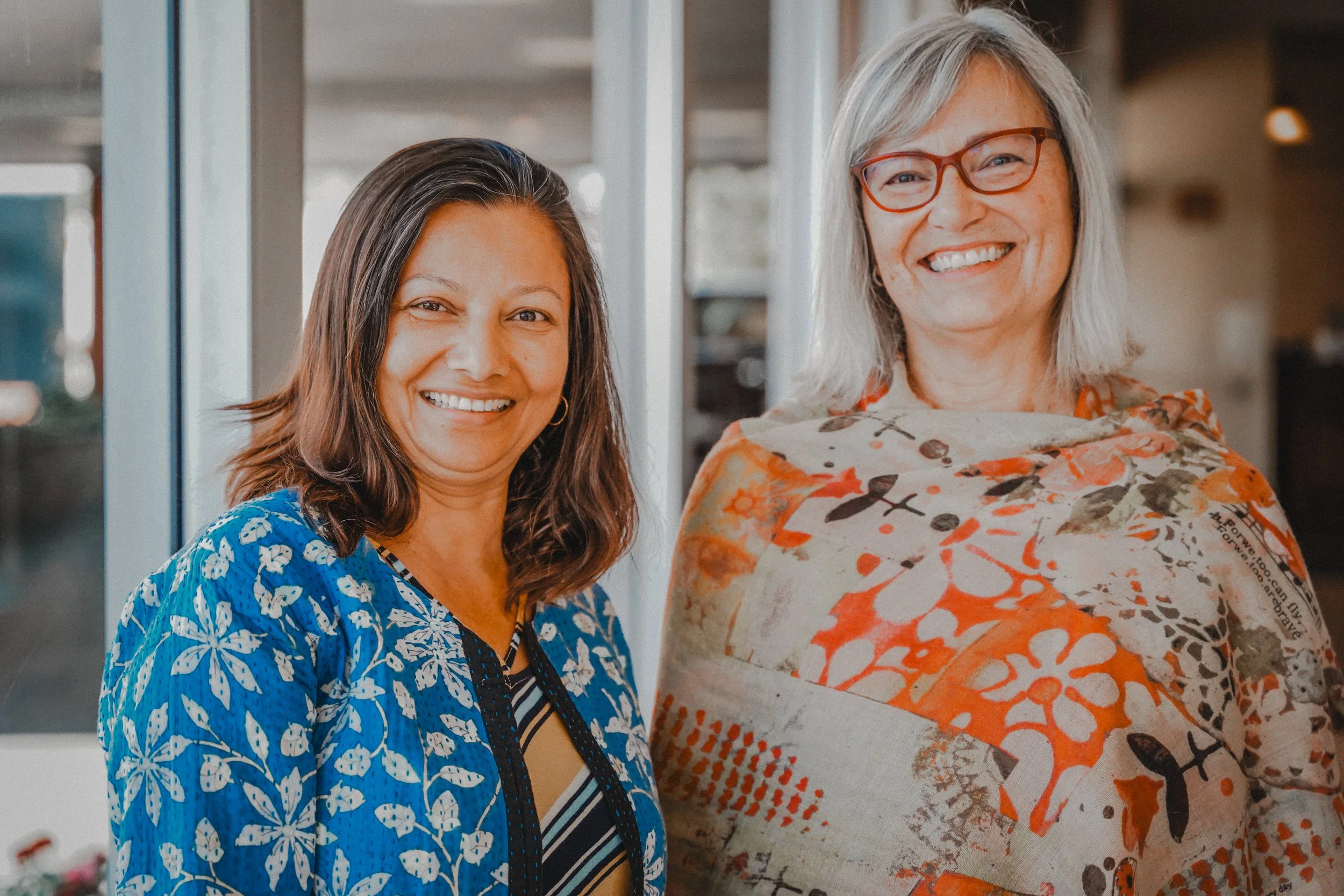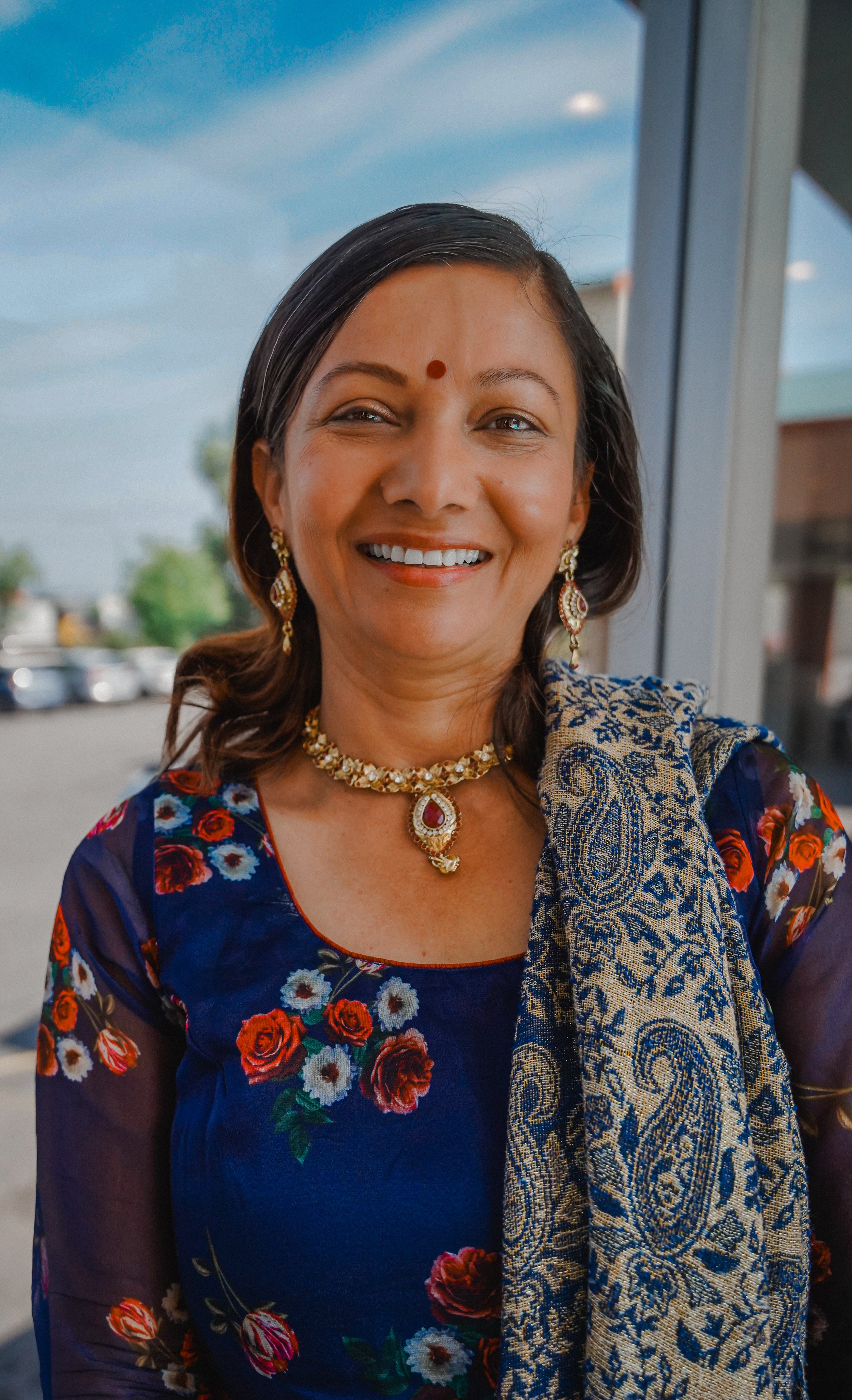“I Am So Proud Of Her”
By Nara Shin
Rana is a new Thrive staff member who came from Afghanistan to Spokane as a refugee at the end of April 2022. Rana soon met Pingala, the Director of the Mahima Project (Thrive’s women empowerment program). Through participating in the Mahima Project weekly women’s tea time, Rana met Lori (who was volunteering for the first time). They became fast friends. Today, Rana calls Lori “Mom,” and now they live together here in Spokane. We talked with Rana today to learn more about her journey to the States and her new life in Spokane, WA.
[Note: due to security issues in Afghanistan, only Pingala and Lori are pictured in this blog.]
At the age of 21, Rana was eagerly looking forward to working for the U.S. Embassy and pursuing higher education. However, a 10-minute phone call changed everything in her life.
“I remember the day so vividly. It was Saturday, and I got a call from my job that the following Monday I should be coming to work. I was very happy. And then the next Sunday early morning, my friend called me and said don't go to university because everywhere was under Taliban control, and the government was not there anymore. Our president escaped from the country, and we didn’t have any university from then. I was really shocked like everything changed in less than a minute. I slept, but when I woke up, it's different people, different lives,” Rana said.
Since Rana was actively advocating for women's rights and education, Rana was in great danger under the Taliban's rule. Fearing for her life, she had to disguise herself behind a Burqa and constantly move to evade the Taliban's search. Eventually, she first sought refuge in Qatar and then eventually ended up in Spokane, Washington.
“I had a big dream. In Afghanistan, going to university is not easy. But, I was the one who could go to our university. I wanted to get my master's degree to teach at universities. Also, I could be a reporter because I was learning literature, but everything just changed in one hour,” Rana commented.
Rana started her first job at a fast food restaurant, earning $16 per hour starting at 5:30 am. She struggled to pay for her one-bedroom apartment every month which cost more than $1,500. Rana shared her concerns with Pingala at the Mahima Project. Pingala thought of Lori and introduced Rana to Lori at the Mahima Project tea time.
Lori smiles at the camera with the painting behind her in Thrive’s women center.
Lori said, “I have a very large house, and I was living alone. So I…[asked Pingala if] she knew someone that needed a place to stay either, you know, just for a few days or for longer. Pingala called me and said someone was looking for a house, a really smart girl. So, we arranged a time to meet, and I took her out to dinner.”
Ever since, Rana stayed in Lori’s house. From that moment on, Rana found a new family in Spokane, with Lori becoming like a mother to her. They did everything together, attending concerts and local events, and sharing breakfast chats. Lori's support and encouragement have helped Rana gain confidence and pursue her dream of studying Computer Science.
Lori said, “I feel proud of how far she's come since I first met her. I think she's really grown a lot. When she first moved in, she had much less confidence. What I mean by that is she had a lot of goals, but she just had a lot of weight on her shoulders. I think helping her become more independent is something that women are not really taught to be in Afghanistan. And I said, ‘Here in the United States, mothers teach their kids how to be independent, be able to go off and have their own life. That's what I'm going to do.’ I said I don't know what to do but I hope you become independent. Now, she is. I am so proud of her.”
Their heartwarming bond is a testament to the power of connection and support. By volunteering at Feast World Kitchen and hearing stories from refugees, Lori understood the challenges they faced when starting a new life in a foreign land. However, in addition to volunteering, she wanted to build more connections and relationships by hearing their stories and being a part of their culture and life journeys.
Pingala Dhital, Manager of Mahima Project (Thrive’s Women Empowerment Program)
Seeing the love and support from Lori and Rana, Pingala commented, “That’s the Mahima thing. This is exactly why I wanted refugee women to be connected with the community. Otherwise, we cannot integrate just by isolating ourselves away. We really have to mingle. We connect at a human level. You need to have a deeper understanding of each other. That's the goal of the Mahima Project, and look at them.”
“I would really like to encourage other people to open up their homes or at least become more involved with helping refugees because I think it’s really important for Spokane to be more diverse since diversity is enriching for the community.”
Rana's journey to Spokane might have been filled with unexpected challenges, but her friendship with Lori and the support she received through the Mahima Project have given her the strength and hope to thrive and pursue her dreams in a new home. Together, they exemplify the power of compassion and the profound impact that genuine connections can have on someone's life.
Click below to learn more about Thrive Center and our women’s empowerment program.




